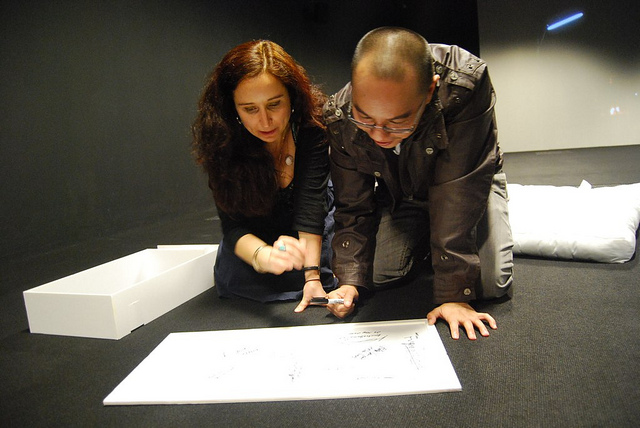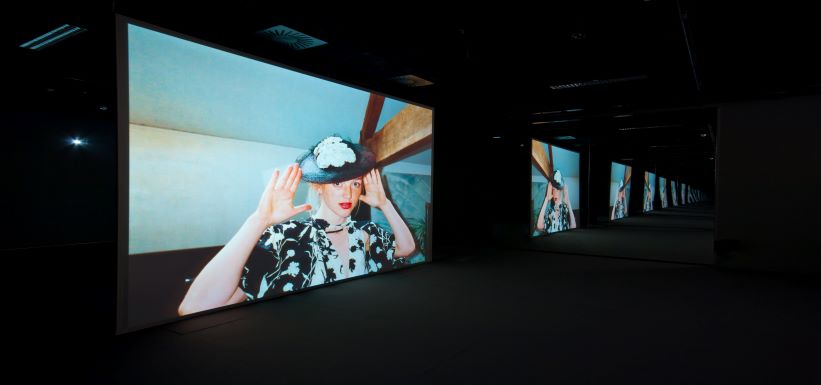Curatorial Practice and the Production of Moving Image Culture
Elisabetta Fabrizi, PhD candidate, School of Arts and Cultures
Elisabetta Fabrizi’s research at Newcastle University stems from her practice of Head of Exhibitions at the British Film Institute and of Curator at BALTIC, offering an analysis of the significance of curators’ creative work and their role in institutionally embedding the moving image at the centre of the contemporary art field.
Elisabetta’s curating and her reflections on creative practice have been recently included in a new book, ‘Artists Moving image in Britain since 1989’, published by Paul Mellon Foundation and Yale University Press to which she contributed an essay analysing her own curatorial work at the British Film Institute – describing the creative opportunities and challenges of curating a contemporary art programme for a gallery sited within a Film institution. This important and timely publication offers a critical appraisal and art historical survey of a period of great transformation for this area of creative practice; a book which aims at considering the practice of artists alongside that of curators who had an impact on the field in the period.
In the book Elisabetta reflected on how curatorial practice holds a central role in the network of forces shaping exhibition, collection and production making strategies, of which moving image is now an important part. Following her PhD research, she did this by referencing some of her commissions, including one with artists and Newcastle University Fine Art Professors Jane & Louise Wilson, who have also been acknowledged for their important contribution to the period with the inclusion of their text part of the 'Artists' section of the same publication.
Elisabetta also reflected on her work with practitioners whose work navigates between gallery and cinema auditorium, and the importance of curatorial practice in shaping the opportunities offered to them in terms of site, context and content: examples cited are John Akomfrah, Michael Snow, Apichatpong Weerasethakul and Iain Forsyth & Jane Pollard, whom she worked with in both their capacity of visual artists and mainstream filmmakers, including by offering them access to the BFI’s extensive Film Archive to create a new commission.
Through a more personal and practice-based outlook which she has developed while at Newcastle University, the text complements The BFI Gallery Book , a book she previously published (BFI, 2011). Both Artists Moving image in Britain since 1989, and The BFI Gallery Book are available from the Robinson Library.
Elisabetta also articulated some of the ideas stemming from her PhD as part of the current Oslo Biennial; and in two reviews published by Art Monthly (in the current November issue and in the forthcoming Dec/Jan issue, https://www.artmonthly.co.uk/). She also discussed her research on art radio Resonance fm, in a panel comprising critic and broadcaster Morgan Quaintance (Art Monthly Talk show, https://www.resonancefm.com/).

